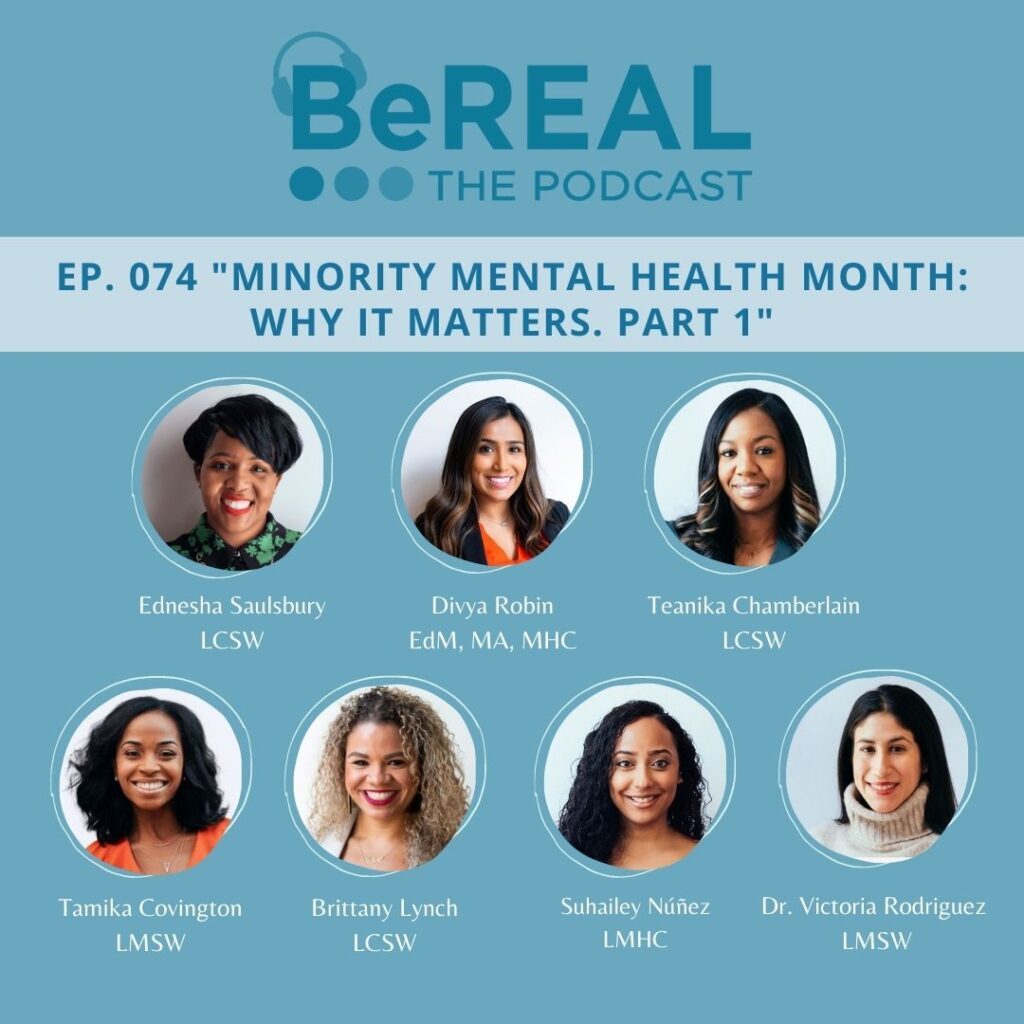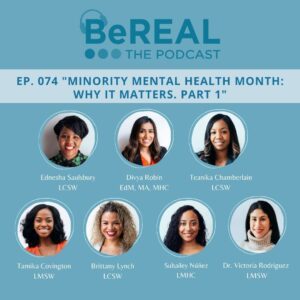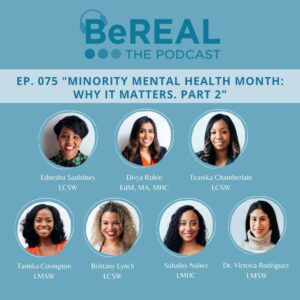Podcast: Play in new window | Download (Duration: 41:37 — 38.1MB) | Embed
Subscribe: Google Podcasts | RSS
Welcome back to BeREAL! This week, Ednesha is joined by some other members of the BeWELL team to discuss the importance of Minority Mental Health Month. Joining her is Dr. Victoria Rodriguez, Suhailey Núñez, Divya Robin, Teanika Chamberlain, and Tamika Covington.
Victoria starts off the episode by talking about why it is important to acknowledge Minority Mental Health Month. She says that there are many minority communities that don’t discuss mental health needs for a variety of reasons. Tamika adds that having a whole month to highlight minority mental health care is better than having a single day because it sustains focus on the topic and shows that this is not a trend by a long conversation that must be had. Divya chimes in to bring up the fact that there is a general Mental Health Month in May. However, during that month everything is talked about in blanket terms that don’t address the specific needs that minority communities face to gain access to mental health resources.
Teanika shifts the conversation to talk about women of color specifically. She notes that many people in her life associate a woman in therapy with craziness or illness. Ednesha adds on that when she talks to members of her community about her work, they are often surprised by what she does and that therapy is for everyone. This is also why she urges medical doctors to refer their patients to mental health treatment facilities when their physical illnesses could have underlying mental causes. She believes people are more likely to take up the referral if done by a doctor.
After a short break, the women return to discuss if mental health resources are harder to access for than the average person. Divya says that as a child of immigrants, there is a guilt that is brought into the therapy room when seeking mental health care. This is because the mental health resources were not available to their parents. The women also discuss the mindset many were raised with of “what happens in the family stays in the family.” They also address the idea that therapy is thought of as a treatment for white people, it is extremely costly, and state sanctioned mental health care can lead to more distress. For example, some mental health calls to authorities are answered by police officers, which causes more stress for patients of color.
Thank you for tuning into the first part of this conversation on Minority Mental Health Month. Be on the lookout for the second part dropping next Tuesday. In the meantime, make sure to check out last week’s episode about In Treatment on HBO.
For more information on BeREAL (our mental wellness podcast), BeWELL (our psychotherapy office in New York City and Hoboken, NJ), or any of these amazing clinicians visit the links below:
To schedule a therapy appointment text BeWELL to 484848 today
Facebook: https://www.facebook.com/Be.WELL.Psychotherapy/
Instagram: https://www.instagram.com/bewell.psychotherapy/




